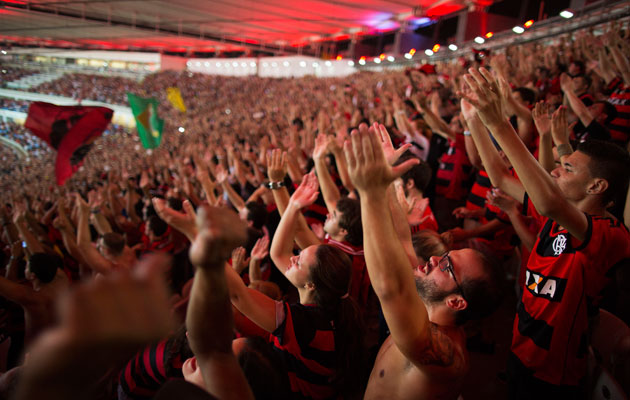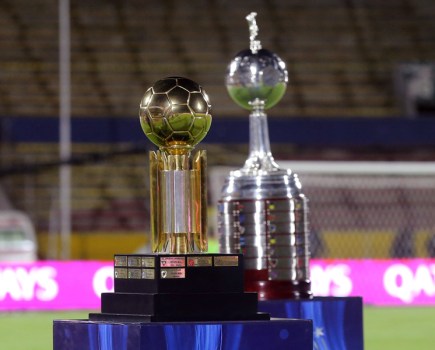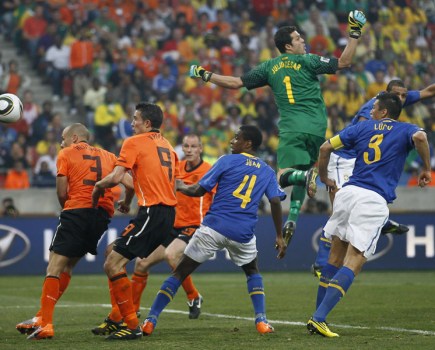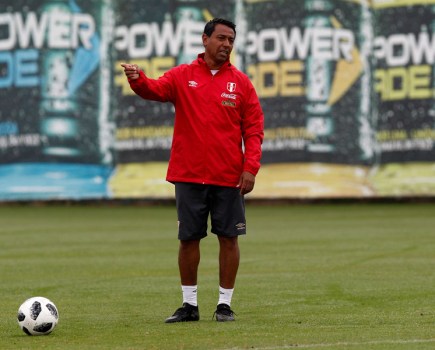Why is it that Flamengo of Rio are capable of filling stadiums thousands of miles away in the North East of Brazil?
The answer surely lies in the 1930s, a key moment for Brazilian football and society. It was when professionalism was introduced, transforming once and for all the elite nature of the game’s early years. And this took place in a context where the government of Getulio Vargas, the father of modern Brazil, promoted values of nationalism and social inclusion.
Under the brilliant presidency of Jose Bastos Padilha, Flamengo read the signs. An elite club instantly gained the common touch, signing the leading three black players of the day and associating the team with the prevailing values. Rio was still the capital, and with radio carrying the team’s matches all over the giant country, a monster was born.
Flamengo has usually been something of an unwieldy monster. It has been a stage for grandstanding, for chaotic administration and unpaid bills – until now.
The current administration of Eduardo Bandeira de Mello appear to have broken all the rules. His is a low profile style, where the priority has been sorting out the finances – even if such a long term focus comes at the expense of short term results.
There was a moment last year when a battle against relegation seemed to be on the cards. A group of former presidents, some of them at loggerheads for years, joined forces to invade Bandeira’s office and call for immediate spending on the playing staff. Bandeira held firm, the club finished in comfortable mid-table and the crisis had passed. Increasingly, the club’s legion of supporters appeared to understand the project, and even take pride in the fact that Flamengo were now striving to pay their bills on time.
Emboldened, Bandeira and his group have now gone a step further. A bill is going through Brazil’s Congress whereby the clubs will be able to pay off their tax debts on favourable terms – in return for reforms and the introduction of better business practises. But there is no need to compel Flamengo to make these changes. They have already been adopted. Last week the club’s board unanimously agreed a new statute with clauses aimed at promoting financial responsibility; future directors now face the risk of having to pay from their own pocket if their decisions are adjudged to be irresponsible.
The nature of football is that no one club is able to save itself. This is an industry where there is a need for opponents. The collective context is vital. It will be fascinating to see if other clubs willingly follow the lead of the current Flamengo administration.
The Belo Horizonte rivals Cruzeiro and Atletico Mineiro faced a dilemma when they met on Sunday in the first leg of the Minas Gerais state championship semi final. On such occasions local pride is always at stake. But both teams have their eyes on a bigger prize.
On Tuesday Cruzeiro are away to Huracan of Argentina in the Copa Libertadores, South America’s Champions League. A day later Atletico are also in action, making a long trip to Mexico to face Atlas of Guadalajara.
It would make sense, then, to rest players to ensure they have enough gas in the tank for the Libertadores matches – especially in the case of Atletico, who can hardly afford to lose on Wednesday. The downside of this, of course, is the risk of falling to heavy defeat to their neighbours and rivals.
In the event both teams were close to full strength for Sunday’s 1-1 draw, aside from Atletico’s Argentine centre forward Lucas Pratto, probably the most important player in the team.
Elsewhere in the continent, Universitario of Sucre found themselves confronting a similar situation, and came up with a very different answer. The Bolivians are in Cruzeiro’s group in the Libertadores, and in only their second campaign are proving one of the surprises of the tournament. After four games they are still unbeaten. A win on Tuesday against Mineros of Venezuela – in theory their home ‘banker’ – may even be enough to ensure qualification for the knock out stage.
To keep their legs fresh and their powder dry for the big night, Universitario requested the rescheduling of Saturday’s league game away to Bolivar. The Bolivian FA did not agree. Universitario, then, staged their own protest. They sent a team of just seven players – the minimum required for the game to go ahead. In addition, all of them are members of the youth squad, and soon after the ten minute mark, with the team already trailing 2-0, one of them went down injured, thus causing the game to be abandoned.







